ASPET once again received a record number of applications for the 2017 Fellowship program, making the selection process extremely competitive. All submissions were carefully reviewed and the strongest ten applicants selected to come to Washington, D.C., this spring. Additionally, ASPET Washington Fellows receive complimentary registration to ASPET’s Annual Meeting at Experimental Biology in Chicago, where they will have the opportunity to network with each other and Fellows from previous years.
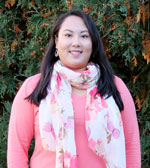 Sophia Kaska
Sophia Kaska
Michigan State University
Sophia was born and raised in Kansas. She earned a B.S. in Biochemistry from the University of Kansas. Following graduation, she began her career as a Research Assistant in the Department of Pharmacology, Toxicology, and Therapeutics at the University of Kansas Medical Center. She then entered the Pharmacology and Toxicology Ph.D. program at Michigan State University where she is now in her fifth year. Her research is focused on investigating the molecular neuroadaptations in the ventral tegmental area in response to opiates, stress, and stress-induced opiate reward. As an ASPET Washington Fellow, Sophia is looking forward to learning how to communicate with elected officials to advocate for increased funding of biomedical research and to discuss how support for funding and research can impact the future of our nation and the world. Outside of the lab, she enjoys CrossFit and sharing her love of science with the public through outreach activities.
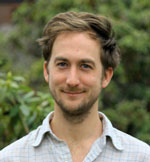 Ken McCullough
Ken McCullough
McLean Hospital, Harvard
Kenneth McCullough was born and raised in Tucson, Arizona. He earned his bachelor’s degree from Lewis and Clark College and gained his doctorate studying neuroscience with Dr. Kerry Ressler at Emory University. His dissertation work focused on the identification and characterization of neural networks responsible for the learning and expression of associative fear. Kenneth is currently a post-doctoral fellow working under Dr. Bill Carlezon at McLean Hospital, Harvard Medical School. His work focuses on the role the protein CREB in specific neural populations in the generation of sleep disturbances observed in models of depression. This work is aimed at the discovery of translationally robust avenues for investigating and treating depression. As an ASPET fellow Kenneth aims to advocate for the effective use of scientific knowledge and discoveries in governmental and judicial policy decisions.
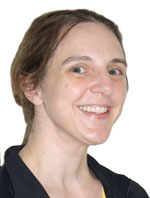 Megan Jo Moerke
Megan Jo Moerke
Virginia Commonwealth University
From Madison, Wisconsin, Megan moved to Pennsylvania to earn her bachelor of arts degree in biology and theatre from Swarthmore College. Ever widening the circle from home, she attended graduate school at the University of Texas Health Science Center at San Antonio, where her research focused on the behavioral pharmacology of drugs of abuse. While earning her doctoral degree in pharmacology, she also became increasingly involved in science communication and outreach, helping to organize and participating in many different types of events, primarily at the local level. Recently, she relocated to Richmond after receiving a postdoctoral appointment in the Pharmacology and Toxicology Department at Virginia Commonwealth University. Megan hopes to use the opportunity of serving as an ASPET Washington Fellow to further develop the skills required to effectively advocate for public funding of scientific research, and build upon her experience with local science outreach by extending it to a national level.
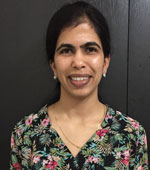 Amreen Mughal
Amreen Mughal
North Dakota State, University
Amreen is a PhD candidate at the Norrh Dakota State Universtiy Departnmentt of Pharmaceitical Sciencees. Her current research is focused on vasoactive effects of a novel neuropeptide ‘Apelin’ which is envisioned as a potential therapeutic molecule for treating cardiovascular diseases and is currently under multiple clinical trials. Amreen is engaged in promoting strategic platforms for diverse and interdisciplinary research by participating in policy making and student development activities. She looks forward to this new experience!
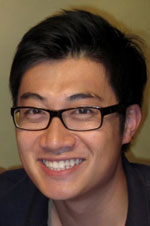 Jacques D. Nguyen
Jacques D. Nguyen
Scripps Research Institute
Jacques is an international scholar from Quebec, Canada. He received his Bachelor of Science degree from the University of Notre Dame and earned his doctorate in Pharmacology and Neuroscience at the University of North Texas Health Science Center. He is currently a postdoctoral research associate at the Scripps Research Institute under the mentorship of Dr. Michael Taffe, and he currently serves as the postdoctoral representative in the Behavioral Pharmacology Division of ASPET. His research is focused on the neurobiology of drug abuse and addiction, specifically the investigation of behavioral consequences of substance abuse and the development and characterization of novel therapeutic approaches for addiction. As an ASPET Washington Fellow, Jacques aims to utilize his experience as an international scholar to educate and to fortify strong relationships between biomedical researchers and leaders within public policy, to advocate for the collaboration within the national and international scientific community, and to advance the role of science in national health policy.
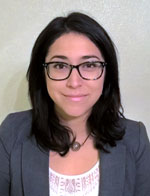 Mikaela Sifuentes
Mikaela Sifuentes
University of Texas Health Science Center at San Antonio
Mikaela grew up in Dallas, TX and earned her bachelor of science in Biology from the University of Dallas. As a current PhD candidate, she studies the mechanism of thyroid hormone neuroprotection after stroke under the guidance of Jim Lechleiter, PhD. After earning a translational science grant, she became interested in the clinical and public health aspects of disease, leading her to become active in science outreach and spreading awareness of cerebro- and cardiovascular diseases within at-risk communities. She has since secured independent funding from the American Heart Association, and has participated with the AHA’s Voices for Healthy Kids in advocating for health-conscious policies at the Texas capitol. As a young scientist, Mikaela has become a proponent for diversity in science and improving communication with the public as a means of promoting science policy. Through the ASPET Washington Fellows program, she hopes to learn specific strategies to advocate effectively for research funding and science-backed legislation.
 Doug Smith
Doug Smith
Virginia Commonwealth University
Douglas received his Bachelor of Science degree from Virginia Polytechnic Institute and State University (Virginia Tech) and is currently a second-year graduate student at Virginia Commonwealth University. While an undergraduate student at Virginal Tech, he received an ASPET Summer Undergraduate Research Fellowship to conduct research on the behavioral pharmacology of hallucinogens under the mentorship of William Fantegrossi at the University of Arkansas for Medical Sciences. His current research interests overlap basic behavioral pharmacology and the therapeutic potential of psychedelic drugs, and he is currently examining the antidepressant-like behavioral effects of the dissociative hallucinogen ketamine and its isomers in several preclinical assays. He hopes the ASPET Washington Fellows program will help him develop connections with congressional delegates in influencing science policy and minimizing the regulatory hurdles imposed on scientists who work with schedule I compounds.
 Karen Tonsfeldt
Karen Tonsfeldt
University of California, San Diego
Karen was born and raised in central Oregon. She received bachelor’s degrees in psychology and zoology from Oregon State University. Her PhD is in neuroscience from Oregon Health & Science University. Her graduate work with Susan Ingram, PhD, studied the neurophysiological basis of sex differences in opioid action and descending pain modulation. She is currently a postdoctoral fellow at the University of California, San Diego, where she continues to study the neurophysiological differences between males and females, particularly in the context of circadian biology and reproduction. Through the Washington Fellows program, Dr. Tonsfeldt hopes to learn how to effectively advocate why it is critical to include female models in health sciences research. She also hopes to understand how science education policies are made. Growing up in a rural district, she appreciates the need for science education in regions without major universities so that students can learn the importance of science.
 Raghav Tripathi
Raghav Tripathi
CWRU
Raised in Portland, Oregon, Raghav earned his undergraduate degree in Medical Anthropology (with a Certificate in Global Health and minors in biology and chemistry) at Case Western Reserve University (CWRU). He studied public health and medical anthropology at the University of Oxford in 2016, and is currently completing his Masters in Public Health with a focus in healthcare policy and administration at CWRU. Raghav will continue at CWRU as an M.D. Candidate in 2017. His previous research primarily includes both biochemical and clinical work in epilepsy, Alzheimer's disease, cardiopharmacology, drug design/synthesis, and hyperglycemia. Raghav's current research is in epidemiological analyses of healthcare disparities in treatment, outcomes, and demographics of non-melanoma skin cancers. Ultimately, Raghav hopes to be a practicing physician with an active role in healthcare policy, clinical research, education, and science advocacy. As an ASPET Washington Fellow, Raghav is very excited to affect science policy on both a local and national level to advocate for increased research funding and awareness of scientific issues with fellow scientists, lawmakers, and the general public.
 Alexandria Trujillo
Alexandria Trujillo
Uinversity of Buffalo
Alexandria was born and raised in Elmira NY and moved to Buffalo NY to complete a BS in Biological Sciences at the University at Buffalo. While in undergrad she worked with programs such as Medical STEP and Say Yes Buffalo to increase STEM interest and engagement with Buffalo students. After joining Dr. Jack Sullivan’s lab with a research interest of using Hammerhead Ribozymes as therapeutics for retinal degenerations for her PhD studies; she continued to work to increase STEM literacy in underperforming and underserved Buffalo Public Schools through the ISEP program assisting teachers and running a science club. Alexandria hopes to increase the amount of individuals from underrepresented groups entering into STEM professions by participating in programs to increase scientific literacy and interest and will use the Washington Fellows Program to gain insight on political processes to secure and advocate for such programs.